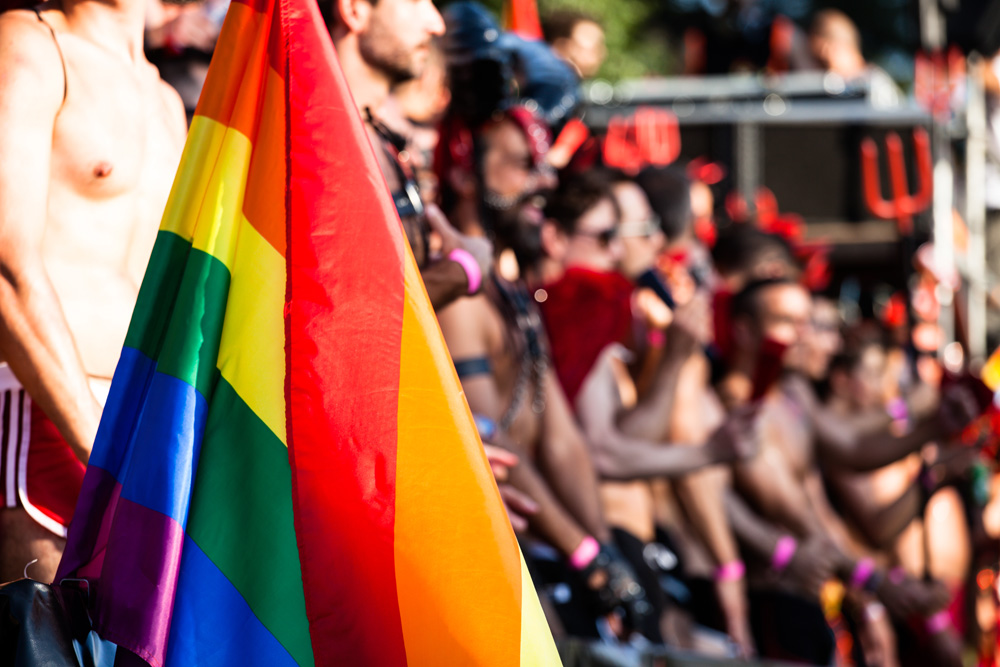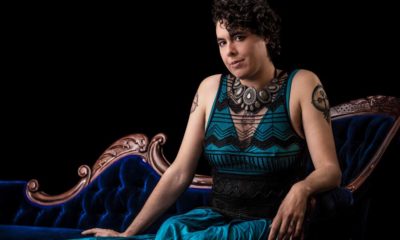LGBTQ
The invisible LGBT people in ASEAN: Part 3
Discrimination of sexual minorities in ASEAN akin to a dog chasing its own tail.
We can weigh the positives and negatives for LGBT rights in Southeast Asia, but one thing is for sure: there are small victories on all fronts of the national struggles in each country. “The growing human rights work has directly increased tolerance and acceptance in terms of promoting LGBT people, but there is still much work to be done,” says Ging Cristobal from IGLHRC. Despite being a native from the Philippines, Ging doesn’t stop short of criticizing ASEAN, where the progress of including LGBT(IQ) people in human rights policies has been zero. “ASEAN has done poorly, as evidenced in its Human Rights Declaration without the inclusion of sexual orientation, gender identity and expression (SOGIE). This is because countries like Malaysia, Singapore and Brunei continue to oppose this as part of human rights regional mechanisms.”ASEAN SOGIE Caucus is a network of human rights activists from eight member countries campaigning to push the issues of SOGIE to regional platforms in Southeast Asia that are repeatedly being rejected by ASEAN. This contradicts the obligations of member states, and also ASEAN as a regional body, such as the ratified United Nations Human Rights Declaration and other UN mechanisms including Committee on the Elimination of Discrimination against Women (CEDAW). Moreover, ASEAN’s Intergovernmental Commission on Human Rights (AICHR) effectively uses the “regional particularities” argument to hinder the progress of inclusion of LGBTIQ people.
The LGBT issue has become another card in the ‘non-interference in domestic matters’ politics play in ASEAN and the rule of ‘all ten members consent’ is unlikely to bring success to the sexual minorities’ campaign for rights and protection. “It’s heartbreaking. They can’t even agree that LGBTIQ citizens have to be protected from violence. This is our lives,” laments Ng Yi-Sheng from the Singaporean Committee of ASEAN SOGIE Caucus. And while the LGBT network is not very connected across ASEAN as people speak different languages and also domestic issues vary from country to country, one thing brings all together—“the need for common human rights charter to protect everyone,” Ng adds. Ging Cristobal from IGLHRC points out that no one is asking for special treatment. On the contrary, it is basic protection for marginalized groups that LGBT activists in ASEAN seek. “We have multiple identities and with each identity we are at risk of facing multiple forms of discrimination and abuse. There are indigenous or ethnic gay persons, lesbians with disabilities, transgender youth, migrant gay men, lesbian children. We see our issues as equal as that of other identities and sectors. In seeking inclusion, we have to be conscious not to exclude others as well.”
As ASEAN readies to become an economic community in 2015 (AEC), economic growth is on everyone’s mind, as it is also the least politically touchy one. As long as the member countries are trading and making money, the national and regional leaderships are happy. But what about LGBTIQ people, aren’t they part of the workforce, don’t they contribute to the economy? “The impact of lives lost and economic deprivation, all have direct effect on economic productivity of a country. LGBT skilled workers leave for security reasons and live in progressive countries, where they are not deprived of work and access to social services,” warns Cristobal. A recent study by University of Massachusetts concluded that “economic cost of homophobia ranges from 0.1 to 1.7 percent of gross domestic product, though the authors admit that the invisibility of LGBT people makes it harder to achieve reliable data. In the on-going research, India was a case study and some interesting facts were revealed. For example, homophobia brings an enormous financial burden to health care. HIV disparity, depression, and suicide cost India between 712 million and 23 billion US dollars in 2012, and all three health issues are particularly high among LGBT people in the country. In economic terms, this is a ‘recession’, researchers concluded.
Ng Yi-Sheng from ASEAN SOGIE Caucus in Singapore believes it is in ASEAN’s interest to push for the recognition of LGBTIQ rights. “Cities that are more accepting of LGBTIQ people have been shown to be more creative and open to development. Homophobic and transphobic cultures also trap heterosexual men and women in gender roles, which they are not always happy with. More openness would create more development and more happiness for people in general.” Unfortunately, not everyone feels the same. As SOGIE activists and their cause prove to be too controversial, other human rights campaigners within ASEAN’s civil society network are often closing the door to include LGBTIQ rights in their agenda. Simply put, they are too afraid that their own battle will be lost. After all, ASEAN is an inter-governmental organization, which all ten member states joined to fulfill their national self-interest, and is by no means to be subjected to the transnational power of human rights documents.
Part 1 can be read here https://simplysxy.com/articles/2014/07/05/the-invisible-lgbt-people-in-asean/
Part 2 can be read here https://simplysxy.com/articles/2014/07/05/the-invisible-lgbt-people-in-asean-part-2/
Image courtesy of Shutterstock
Join SimplySxy’s forum discussions now on Society
Do not miss another article on SimplySxy! Follow us on Facebook and Twitter for our latest updates!
Alexandra Demetrianova is a freelance journalist and former Southeast Asia/Asia correspondent for Slovak Radio – the public broadcaster in Slovakia. For four years she has been covering Thailand and the wider region for radio and major Slovak press titles, with issues ranging from politics and economy to society, culture, religion, environment and current issues in Southeast Asia. As a sole Slovak correspondent in Asia, she has also focused on commenting and analysis of China, Japan, Koreas and India.
Alexandra studied journalism and mass media at Comenius University and later Pan-European University in Bratislava, Slovakia, where she achieved Bachelor of Arts (2010). Starting journalist work as early as her studies (2006), she has worked for major press as well as audiovisual media in Slovak market. She went on to study Master in International Relations at Thammasat University in Bangkok, where she extended her work to academic research and event projects. She has co-organized Thammasat Human Rights Film Festival (2012) and later Common Lives Film Festival, a side event of ICIRD held at Chulalongkorn University (2013). She is based in Bangkok.






























